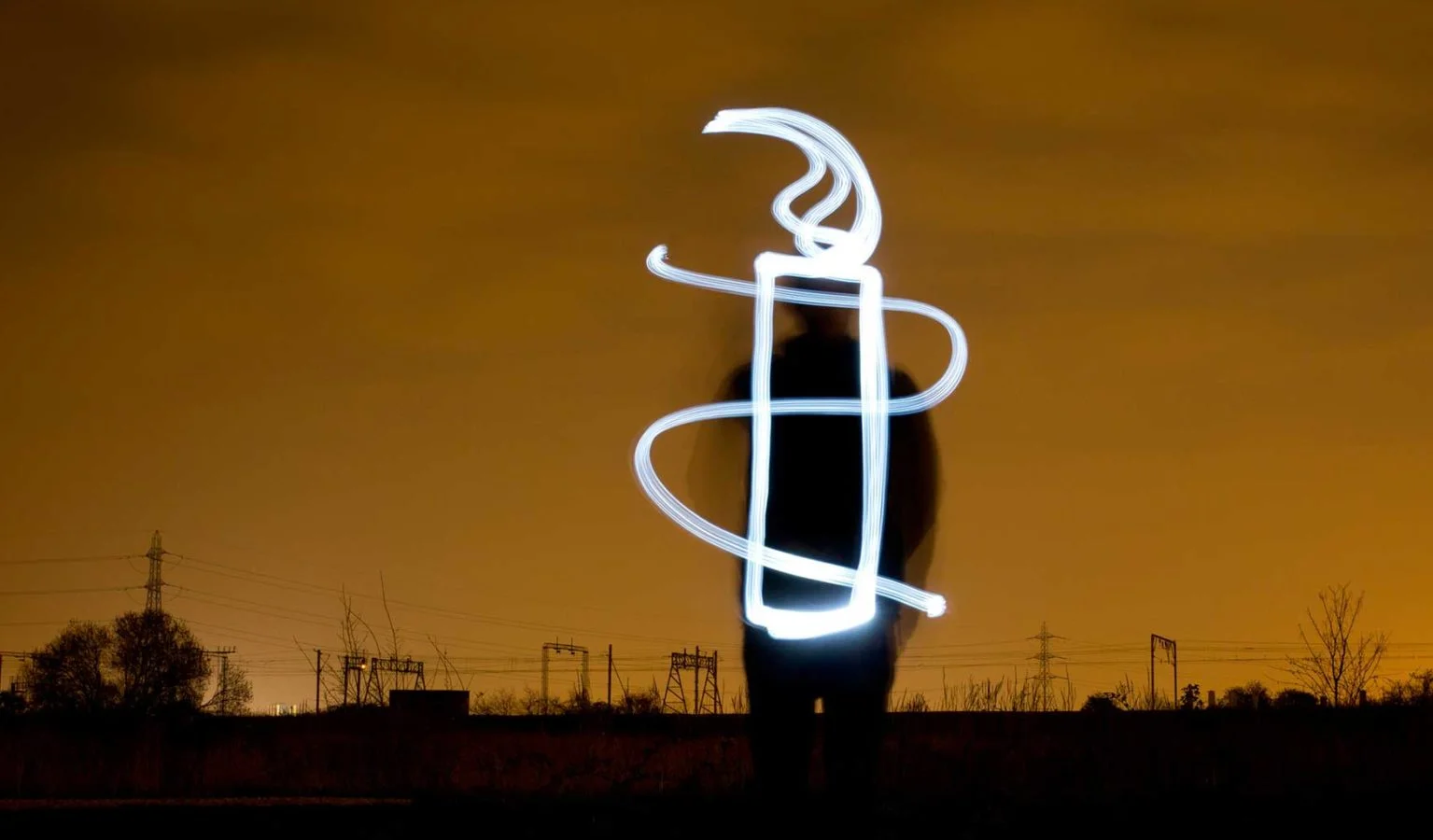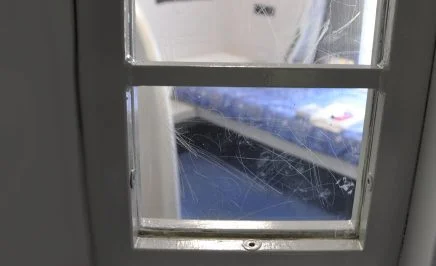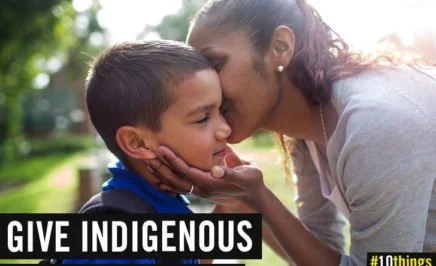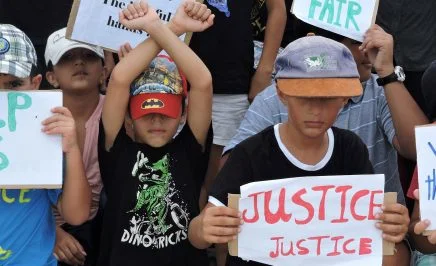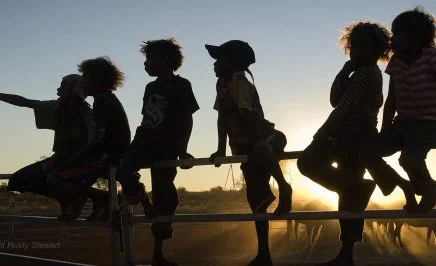The Palaszczuk Government must act now to keep around 150 Queensland children as young as 10 years old from losing their childhoods in prison each year, said Amnesty International in Brisbane today.
The Queensland Government is currently harming 150 children across the state per year at a crucial time in their development, by locking up children aged 10 to 13. This is far younger than the rest of the world, where the median age of criminality is 14.
Amnesty International today released a summary paper outside Queensland Parliament House, calling on Minister for Child Safety, Youth and Women, Di Farmer, to raise the age Queensland locks up children to 14, in line with the latest medical research and with international standards.
QLD locks up the most young kids
The moment is now for Minister Farmer to make this change, with the Queensland Youth Justice Strategy currently being drafted and due for completion in November.
Queensland is in a position to show national leadership on the issue, as it locks up the highest number of 10-13 year old children in Australia.
“No child should be kept in a tiny cell, separated from their family. But, across Queensland, little kids as young as 10 are being locked up – far younger than the rest of the world and at the highest rates in Australia. Indigenous children are the worst affected; it’s not fair and it’s not right,” said Belinda Lowe, Indigenous Rights Campaigner at Amnesty International Australia.
Services, not sentences
The problem vastly affects Indigenous children, who are 30 times more likely to be locked up in Queensland than non-Indigenous children.
Shane Duffy, CEO of Aboriginal and Torres Strait Islander Legal Services (QLD), said, “Indigenous kids face a higher risk of poverty, poor health, disability and family violence, as well as discrimination, such as being more likely to be stopped by police, and given custodial sentences by magistrates. That’s why this government needs to stop criminalising such young children, and instead support the excellent Indigenous-led programs around Queensland that will give Aboriginal and Torres Strait Islander children the best chance in life.”
Dr Li-Zsa Tan, Fellow with the Australasian College of Physicians, said, “Behavioural and neuroscientific studies show the brain undergoes an intense period of development and synaptic change during prepubescence and adolescence. These changes directly affect how children perceive and react to risk-taking under peer influence, and these issues are compounded in vulnerable communities.
“Paediatricians recognise that the current minimal age of criminal responsibility does not address factors contributing to juvenile crime, and is in fact detrimental to a child’s health and social development.”
Therapeutic approach more successful
Locking up young children in fact creates more adult offenders. The Queensland Family and Child Commission found children locked up before the age of 14 are three times as likely to become chronic adult offenders than children locked up after 14. Imprisoning 10-14 year old children also makes them less likely to complete high school, to complete further education and training, and to gain employment.
Today’s summary paper echoes the findings of the recent Report on Youth Justice, led by ex-Police Commissioner Atkinson, that the Queensland Government would better prevent offending and give 10-13 year old children more of a chance to overcome problems in their young lives by switching to a therapeutic approach and keeping kids out of courts and custody.
One such program is the Townsville-based Red Dust Healing, run by Juru/Erub and Kanaka man Randal Ross. Red Dust Healing works in detention centres and schools to deliver cultural healing programs for children at risk of being sent to prison.
A Red Dust workshop at the Cleveland Youth Detention Centre had powerful results: the 40 kids who did the workshop were monitored for two years afterwards, and all succeeded in staying out of detention. And yet, the Queensland Government has not funded this trailblazing project to run again in Cleveland.
“All Queensland children deserve a positive start in life. But once they’re stuck in the quicksand of the prison system, a child’s chance at a bright future can be lost forever. The Palaszczuk Government must instead give young kids the extra support they need, so they can grow and thrive, strong in their communities,” said Belinda Lowe.
“A smart government can take a better approach: Fund community-led programs to help vulnerable kids, and raise the age that it first locks up children to 14.”
